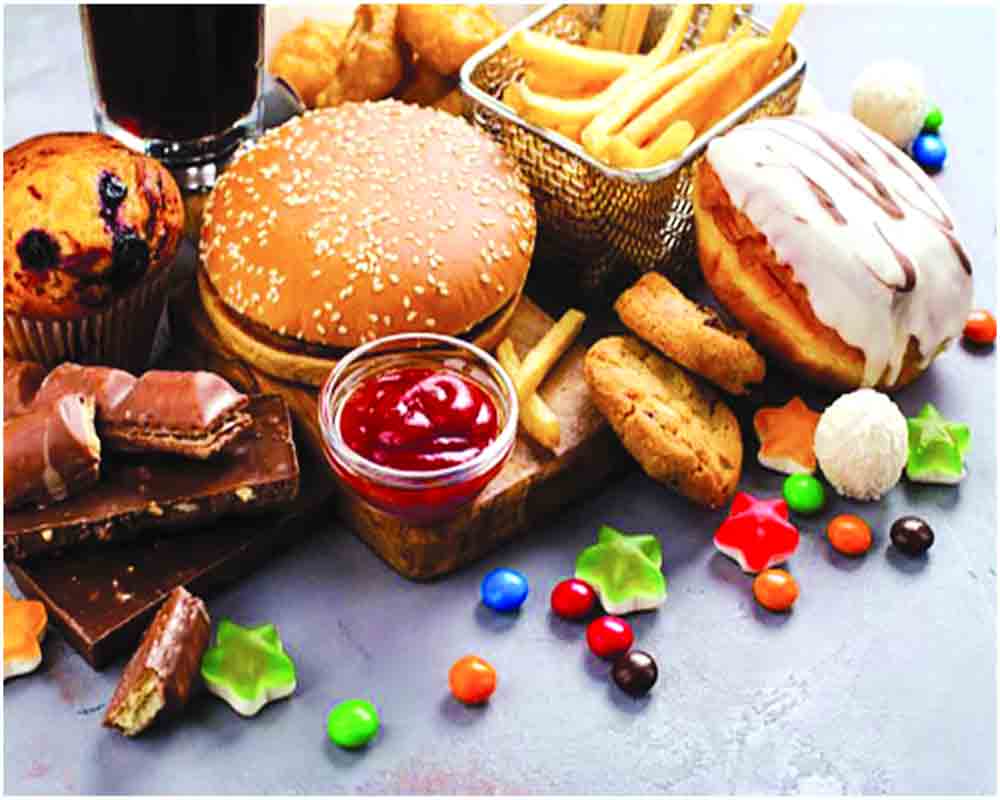High-energy, high-fat and high-sugar diets escalate non-communicable diseases, leading to life-time misery and intergenerational consequences
Persistent shaming by media of India's undernutrition profile has distracted the policy-makers from the invisible menace of overnutrition, which has now assumed epidemic proportions.
While the presence of hunger and undernutrition in the marginalized and poor segments of populations is undeniable, the rapid escalation of obesity and overnutrition-associated Non-Communicable Diseases (NCDs) like diabetes, hypertension, heart disease and stroke are a reality too.
In 2016, these NCDs were responsible for 55 per cent of the total disability adjusted life years and the major risk-factors (high blood pressure, high blood sugar, high cholesterol, and overweight) contributed to a quarter of the NCD burden.
Alarmingly, the recent Comprehensive National Nutrition Survey documented “metabolic obesity” in at least half of the children aged 5-19 years, including those who were thin or short, conventionally labelled ‘undernourished’.
This simultaneous burden of malnutrition needs immediate redressal in a judicious and evidence-based manner, ensuring that interventions for undernutrition do not escalate overnutrition.
There is a deep-rooted socio-cultural belief that higher caloric intakes through hyperpalatable, high energy-density, high fat and high sugar diets will ameliorate undernutrition, particularly in children and adolescents. However, recent evidence unequivocally demonstrates that such diets fuel escalation of non-communicable diseases, which could result in a life-time of misery and intergenerational consequences.
Characterization of foods as high fat, sugar or salt (HFSS) is based on the World Health Organization's population nutrient intake goals to prevent obesity and related NCDs. Foods are labelled as HFSS, if the energy contributions or the content of these nutrients exceeds the total energy available from those foodstuffs, as follows: 30 per cent for fat or 10 per cent for saturated fat, 10 per cent for free sugars, and 1 mg sodium per 1 kcal for salt.
Without prominent and easy to understand labelling, it is an arduous task to identify a HFSS, particularly for semi-literate and illiterate consumers. Global and Indian evidence demonstrates the deleterious effects of sustained consumption of HFSS diets. There is a significant association of higher consumption of such foods with all-cause mortality and several diseases. These include overall cardiovascular diseases, coronary heart diseases, cerebrovascular diseases, hypertension, metabolic syndrome, overweight and obesity, depression, irritable bowel syndrome, overall cancer, postmenopausal breast cancer, gestational obesity, adolescent asthma and wheezing, and frailty. Excess salt intake is more specifically related to hypertension.
A fascinating experiment conducted at the National Institute of Health, USA, compared effects of unprocessed and ultra-processed meals matched for presented calories, energy density, macronutrients, sugar, sodium, and fiber. Subjects were instructed to consume as much or as little as desired. Within a short span of two weeks, energy intake was greater with hyperpalatable ultra-processed diet with increased consumption of carbohydrate and fat, but not protein. This led to an average weight gain of 0.9 kg.
Similar evidence of unfavorable metabolic perturbations, hypertension, mental health issues and sleep disturbances has accumulated for children and adolescents. Disturbingly, HFSS foods are now being increasingly introduced in infancy in the garb of “health foods” and “healthy complementary diets”.
Infancy is an impressionable age, when future tastes are developed and fats, sugars and oils are somewhat addictive. Thus, it is crucial for the right dietary practices to be inculcated from the very beginning.
There is no escaping the conclusion that the consumption of HFSS foods has to be drastically reduced to improve the health and human capital of the nation. Importantly, this has to start prior to conception and with greater emphasis on impressionable infants, children and adolescents. Fortunately, India is still in an expanding phase of marketing of such products and is some distance away from the peak and we have the collective experience of developed countries to guide us.
Obviously, the multi-national food-industry will resist these attempts on all fronts. Health education alone is unlikely to successful, particularly because such foods are tasty, addictive, cheap and convenient, but extort a heavy price on health. Strict laws regulating the sale and advertisement of such foods are immediately required. The time to act for maximal benefit, is therefore, now; else we may repent for generation(s), with only ourselves to blame.
(The writer is Professor and Senior Consultant in Pediatrics and Clinical Epidemiology, Sitaram Bhartia Institute of Science and Research, New Delhi. The views expressed are personal.)


























